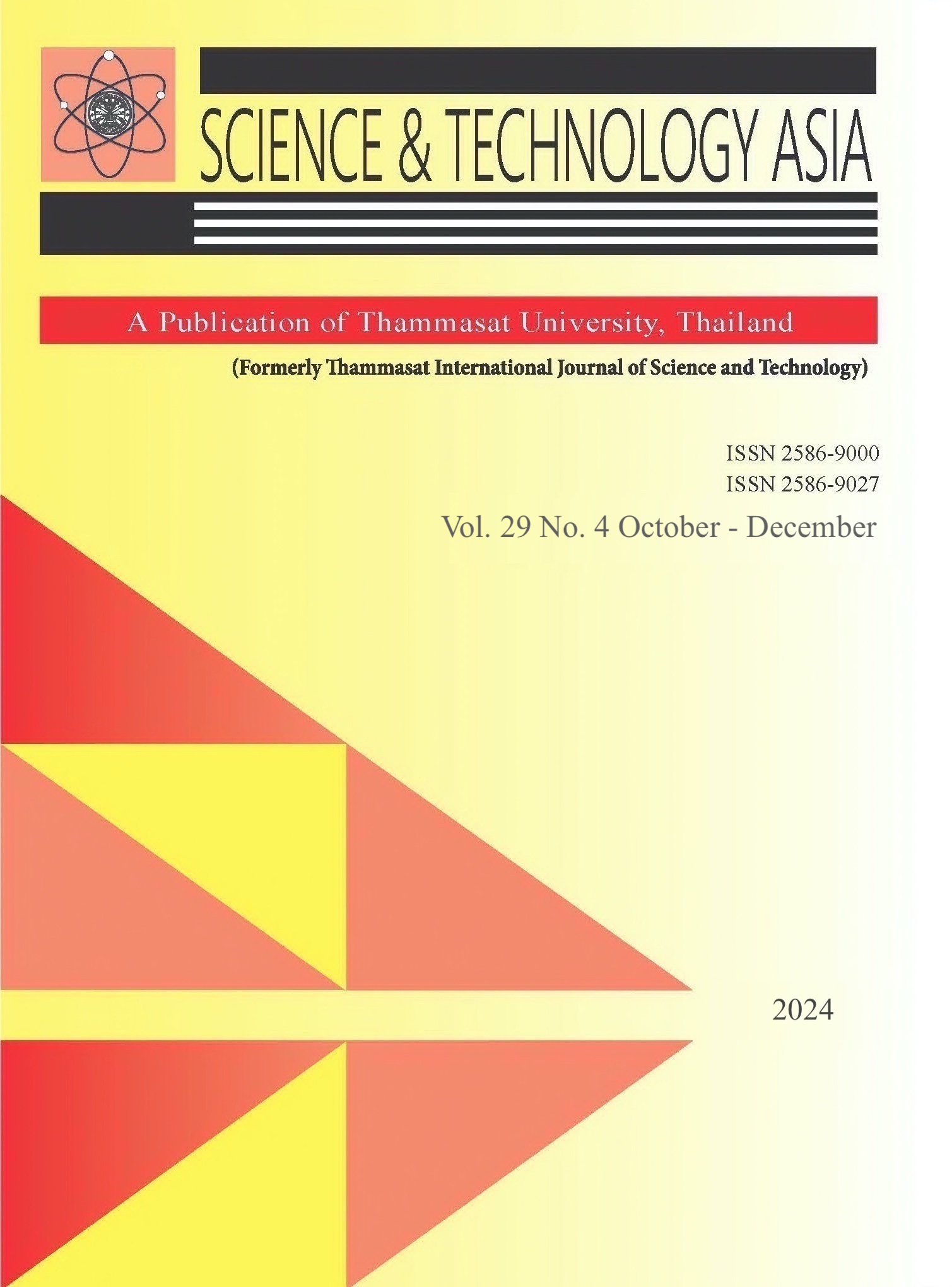Machine Learning-Driven Efficiency Estimation and Variable Analysis in Combined Cycle Power Plants
Main Article Content
Abstract
The combined cycle power plant (CCPP) has seen significant growth as a key player in the energy sector due to its efficient electricity generation and low greenhouse gas emissions. The growing global demand for electricity, fueled by rapid technological advancements, underscores the need for a reliable power supply. However, accurately predicting the efficiency of CCPPs is essential for optimizing performance and cost-effectiveness. The efficiency of power plants is influenced by a variety of environmental and internal factors, but traditional models often fail to capture these complexities. This study addresses these gaps by employing machine learning models to estimate the efficiency of a CCPP in Thailand, using a comprehensive dataset of fourteen input variables. Nine machine learning models, including regression and ensemble methods, were used for evaluation, with Random Forest Regression and Gradient Boosting achieving superior accuracy levels of 99.91% and 99.83%, respectively. Furthermore, the research delves into 14 distinct variables utilized for prediction and aims to determine which variables are of paramount significance in the assessment process.
Article Details

This work is licensed under a Creative Commons Attribution-NonCommercial-NoDerivatives 4.0 International License.
References
Araner (n.d.). What makes combined cycle power plants so effective? Retrieved Febuary 28, 2022. https://www.araner.com/blog/combined-cycle-power-plants.
Breeze, P. (2020). Power Generation Technologies. Newnes, an imprint of Elsevier.
Donev JMKC, et al. (2020). Combined cycle gas plant. Energy Education. Retrieved November 1, 2022.
https://energyeducation.ca/encyclopedia/Combined_cycle_gas_plant.
ESFC (n.d.). Combined Cycle Power Plant (CCPP): Construction under the EPC contract equipment supply. Retrieved November 1, 2022.
https://esfccompany.com/en/projects/energy/gas-and-steam-power-plant-construction-and-equipment/
Ramireddy, V. (2012). An overview of combined cycle power plant. Electrical Engineering Portal.
Rapier, R. (2017). The Load Following Power Plant: The Peaker. Transform. Retrieved November 1, 2022.
https://www.ge.com/power/transform/article.transform.articles.2017.jun.load-following-power-plant#
Our own paper.
Allegorico, C., & Mantini, V. (2014). A data-Driven Approach for on-line Gas Turbine Combustion Monitoring using Classification Models. European Conference of The Prognostics and Health Management Society.
Jihad, A. S., & Tahiri, M. (2018). Forecasting the heating cooling load of residential buildings by using a learning algorithm “gradient descent”, Morocco. Case Studies in Thermal Engineering, 12, 85-93.
Elfaki, E. A., & Ahmed, H. A. (2018). Prediction of Electrical Output Power of Combined Cycle Power Plant Using Regression ANN Model. Journal of Power and Energy Engineering, 6, 17-38.
Kaya, H., Tufecki, P., & F. S. (2012). Local and Global Learning Methods for Predicting Power of a Combined Gas & Steam Turbine. International Conference on Emerging Trends in Computer and Electronics Engineering, 13-18.
Siddiqui, R., Anwar, H., Ullah, F., Ullah, R., Rehman, M. A., Jan, F., & Zaman, F. (2021). Power Prediction of Combined Cycle Power Plant (CCPP) Using Machine Learning Algorithm-Based Paradigm. Wireless Communications and Mobile Computing.
Alketbi, S., Nassif, A. B., Eddin, M. A., Shahin, I., & Elnagar, A. (2020). Predicting the power of a combined cycle power plant using machine learning methods. International Conference on Communications, Computing, Cybersecurity, and Informatics (CCCI).
Huang, F., Xie, G., & Xiao, R. (2009). Research on Ensemble Learning. 2009 International Conference on Artificial Intelligence and Computational Intelligence, 249-252.
Montgomery, D. C., Peck, E. A., & Vining, G. G. 2012. Linear Regression Analysis (5th ed.). Wiley.
Parsian, M. (2015). Data Algorithms. O’Reilly Media, Inc.
Cutler, A. (2010). Random Forest Regression and Classification. Ovronnaz/Utah State University.
Steinwart, I., & Christmann, A. (2008). Support Vector Machines. Springer New York.
Schapire, R. E., & Freund, Y. (2014). Boosting: Foundations and Algorithms (Adaptive Computation and Machine Learning). The MIT Press.
Hegde, R. K. (2015). Pearson Education India.
Kane, F. (2017). Hands-On Data Science and Python Machine Learning. Packt Publishing.


